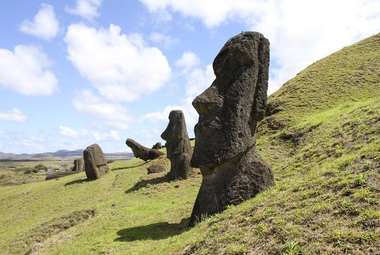Marcos Cabello
Reporter, Social Sciences and Business & Economics
@marcosacabMarcos Augusto Cabello, based in Boston, covers the Social Sciences and Business & Economics for The Academic Times. Prior to that, he obtained his Juris Doctor from Boston University School of Law and his bachelor’s degree in criminology and philosophy, with a minor in psychology, from Florida State University.
 Lessons gleaned from hundreds of years of isolation on Easter Island may have as many implications for corporate research and development departments as they do for future colonies on Mars, according to the authors of a new study showing that Easter Island’s population configuration promoted cultural diversity and retention of information.
Lessons gleaned from hundreds of years of isolation on Easter Island may have as many implications for corporate research and development departments as they do for future colonies on Mars, according to the authors of a new study showing that Easter Island’s population configuration promoted cultural diversity and retention of information. The vast majority of the historical anatomical figurines owned by Duke University are composed solely of true ivory, according to a new study using micro-CT scans to determine the figurines' composition and bring archaeologists one step closer to understanding the age, origins and possible uses of these artifacts.
The college or university a person attends can be a key factor in determining who they will marry, according to a new analysis of Norwegian higher education data, a phenomenon that is not explained by the self-selection of individuals into particular institutions or fields of study via preexisting traits.
Florida's 2018 ballot initiative that returned voting rights to formerly incarcerated individuals did not increase voter turnout for individuals living with or near formerly incarcerated Floridians in 2018, according to a new study that demonstrates much work is yet to be done to reach communities that were disenfranchised by Florida's practices.




